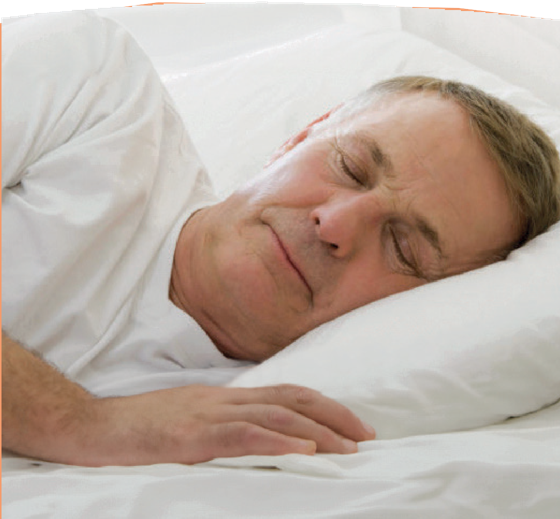Information for patients
Managing sleep
Many people suffer with difficulty sleeping, especially when faced with serious illness. This may be caused by some treatments or worry and anxiety.
Not getting enough sleep can lead to fatigue and further health problems.
Most people need around eight hours of sleep a night to function properly, although as we get older this doesn’t have to be in one go.
Many people who are unwell find it hard to sleep. Some may even find that their day/night-time sleep patterns become reversed.
We are all different and we each need to find our sleep/exercise/relaxation balance.
What happens if I don’t get enough sleep?
- You start to feel tired all the time
- You become short tempered
- You fall asleep during the day
- You find it difficult to concentrate
- You find it difficult to make decisions
- You can start to feel depressed
- Your risk of accidents or injury increases.
What can I do to sleep better?
It’s really important to get into a sleep routine, even if you feel like sleeping all the time. Following this simple 10-point plan will help.
- Sleep for just long enough, don’t spend unnecessary time in bed if you don’t need to
- Go to bed each night and wake each morning at the same time
- Take regular exercise
- Reduce light and noise when trying to get to sleep
- Keep your bedroom at a steady temperature
- Have a bedtime snack, for example a hot chocolate or warm milk
- Avoid stimulants after mid-afternoon
- Limit your alcohol intake
- Learn how a daytime nap affects you and change your routine accordingly
- Know when to say “enough”, instead of tossing and turning. If you can, get up and do something until you feel tired again.
Other tips for a healthy sleep routine
Eat healthy and regularly. Eating earlier in the evening will enable digestion to finish by the time you go to bed. Drink plenty of fluids during the day, cutting back in the evening before bed.
Even if you feel tired, physical activity will help enable sleep. Even light exercise will increase energy levels and improve your physical fitness.
It may also help to take a bath before bed, practice relaxation techniques and try complementary therapy at bedtime. Good “sleep hygiene” is very important to promote a good night’s sleep and helps to improve the quality of sleep.
There are medications available which can help to improve your sleeping pattern. Please speak to your healthcare professional for information.

